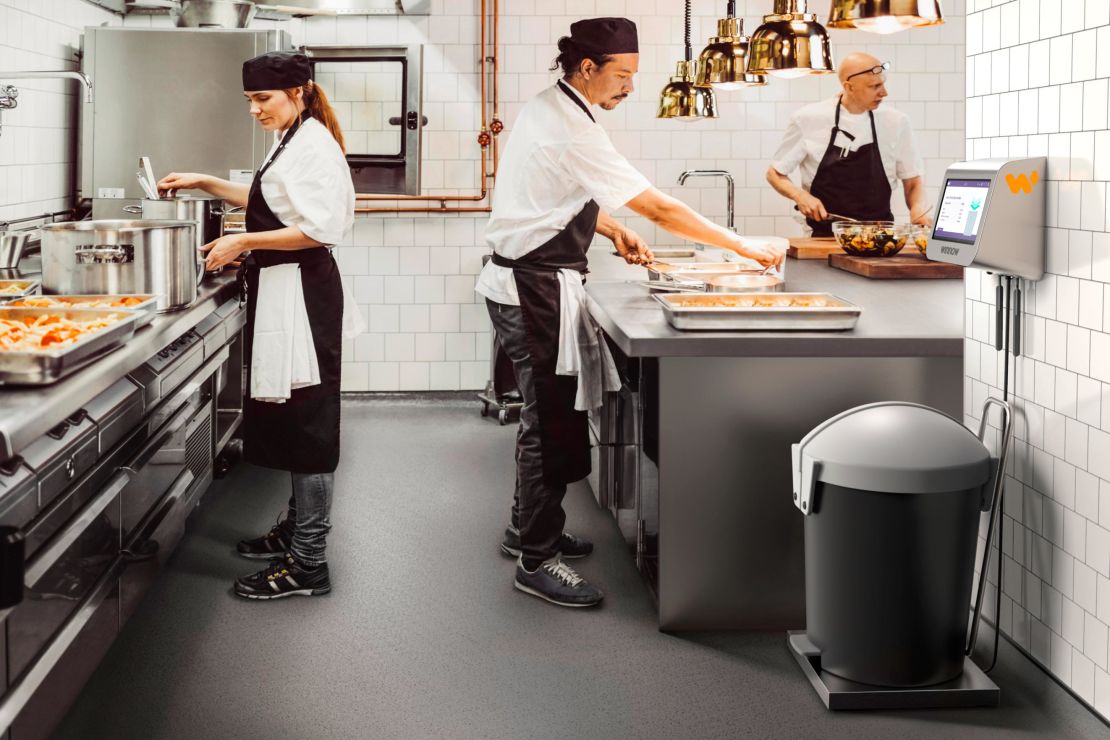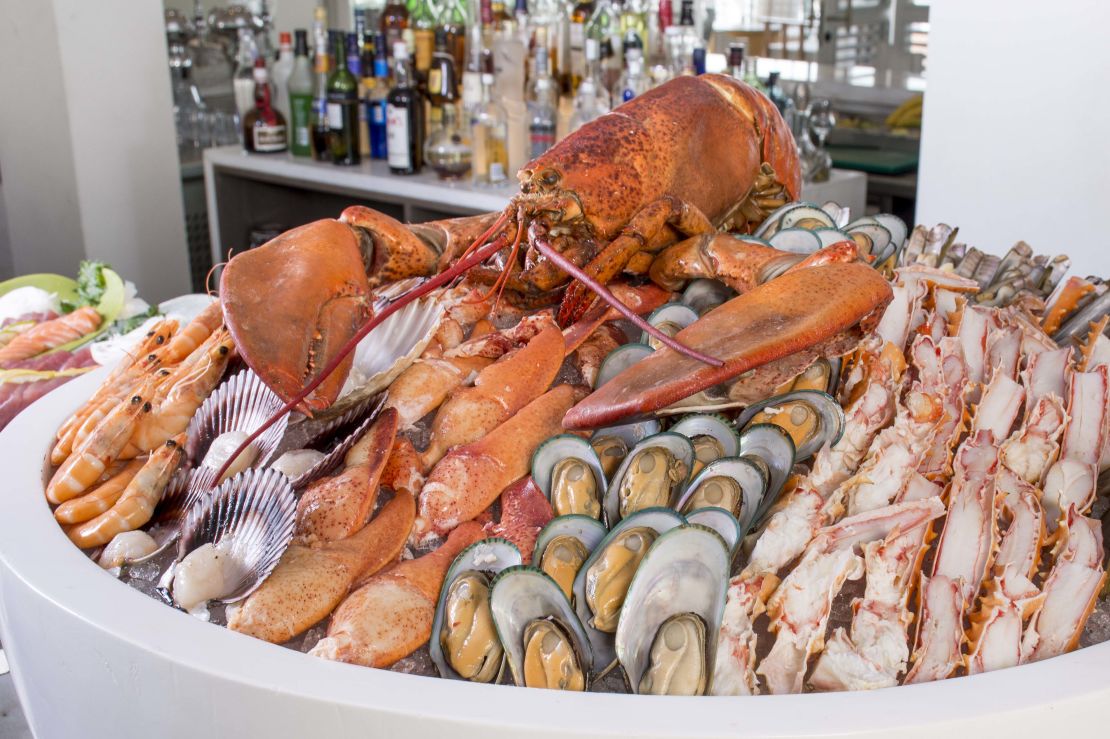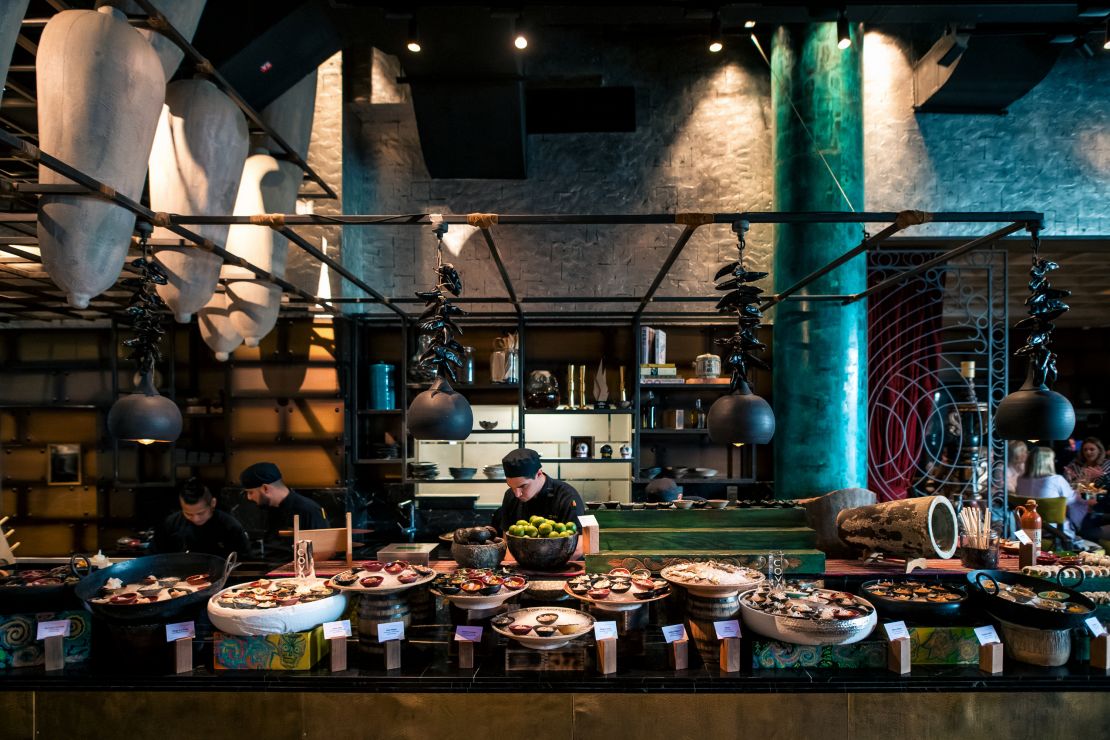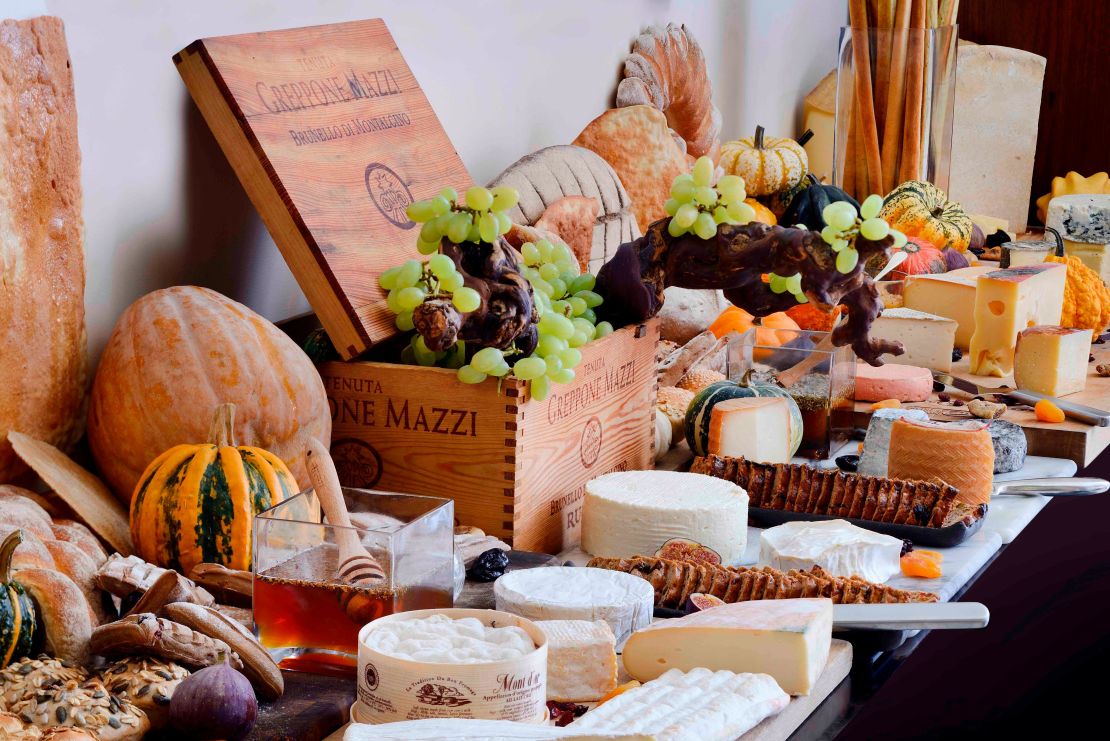When writer Guy Beringer introduced the concept of brunch more than a century ago – a civilized late-morning meal, not as early as breakfast or as heavy as Sunday lunch – he could not have foreseen what it would become in its most elite incarnation.
The peak rendition of modern brunch is an extravagant, day-long affair featuring tables groaning with steak, lobster and caviar, washed down with unlimited Bellinis, Mimosas and Bloody Marys.
But with all that food can come an awful lot of waste.
Globally, around a third of all food is lost or wasted. If food waste were a country, it would produce the third-highest carbon emissions after the US and China. For environmentally conscious consumers, from New York to Las Vegas to Singapore, this opulent meal is beginning to feel queasily excessive.
Dubai is home to some of the finest restaurants on earth, but nowhere is the toll of a bottomless brunch more obvious. Annual food waste is estimated at 197 kilograms per person in the United Arab Emirates, almost double the 95-115kg/person in Europe and North America, according to the Economist Intelligence Unit.
Dubai's most decadent restaurants
Not only is that hard on the environment, it’s expensive, costing the UAE $3.5 billion a year, according to the government. Most of the gourmet cuisine consumed in Dubai is imported over vast distances.
From donut walls to zero-waste kitchens
From midday on a Friday, the city’s most exclusive restaurants and hotels throw open their doors to hordes of revelers ready to splash out on lavish brunches. There’s Nobu’s $177-a-head champagne and sake brunch with DJ and Japanese drummers; Traiteur at the Park Hyatt’s dizzying $230-a-head buffet with an entire room dedicated to cheese; and Jumeirah Al Qasr’s $190 four-hour feast across three restaurants with a charcuterie corner, crab shack and band.
Bubbalicious at The Westin Dubai is popular with the Instagram crowd for its piles of seafood, pop-up bars serving alcohol-filled watermelons, and acrobats; We Brunch’s $200 party at the Intercontinental Dubai Marina boasts an outdoor barbecue, milkshake and donut walls and ball pit.
Dubai in the sky: Top 12 high altitude dining experiences
But some of these luxury restaurants and hotels are bringing in cutting-edge technology, eco-friendly processes and smart serving techniques to reduce leftovers without compromising the sense of abundance at their brunch extravaganzas.
Tech firm Winnow says it has helped 1,000 large restaurants across the world – including those run by Ikea, Compass catering and Carnival’s Costa Cruises – slash their food waste by around 50 per cent with a system that weighs and records what kitchens throw away.

In March, it upgraded to artificial intelligence product Winnow Vision, eliminating the manual element with a camera and computer that identifies the foodstuff and stores the data in the cloud. It is being introduced to more than 100 kitchens in the UAE, including those at Dubai’s IHG hotels, AccorHotels and Emaar Hospitality’s Armani Hotel in the world’s tallest building, the Burj Khalifa.
Winnow says professional kitchens lose up to 20 percent of the food they buy – and estimates it is already saving its clients more than 8,600 tons in food waste per year.
“In large kitchens, teams are essentially being asked to predict how much food will be consumed with limited information,” says David Jackson, head of marketing at Winnow.

“The large majority is wasted because it’s overproduced – 70 per cent of it before it gets to the customer. Food goes on a heater counter or salad bar, but the customer doesn’t consume it, or it’s a big staff restaurant, where food goes out on to hot plates before food service.
“For the hospitality sector … there’s a lot of conversation and increasing urgency to fix this problem.”

Accor says the tech has helped its hotels cut waste by 69 per cent, and it aims to introduce the program at all its venues. Emaar Hospitality says it has reduced waste by 56 per cent and saved more than $400,000 a year at 12 venues by using Winnow. Its venues also have recycling machines that can convert 70-80kg of waste food to 14-15kg of compost, which is sent to farms and landscaped areas.
Goodbye to the buffet
Dubai’s renowned hotels are also reducing waste by changing how they serve customers. Accor’s communications vice president Alka Winter says the group is working to “engineer menus, portions, presentation – and move away from the traditional huge buffets.”
The Loft at Dubai Opera in February launched the “biggest caviar brunch in town,” featuring caviar-topped steak and burrata ice cream for $190 a head. Contradictory as it sounds, the restaurant tries to incorporate portion control into its unlimited offering.

“We have live stations where you help yourself – to caviar, oysters, shellfish, risotto, cheese, charcuterie – and eight courses to the table, individual dishes meant to be shared,” says head chef Brian Voelzing.
Read: $5 billion Dubai megaresort rises from The World
To minimize waste, its buffets now display smaller portions of cheese and caviar – which has a short shelf-life once a tin is opened – and customers are encouraged to order a la carte dishes.
The Loft sources oysters and caviar from the UK, beef from Australia, lamb from New Zealand and vegetables from Italy, but Voelzing says chefs in the UAE are increasingly trying to find local alternatives. “We’re very aware of where that’s coming from,” he says. “Sustainability is something everyone is more aware of now.”
He now buys micro herbs (seedlings such as pea shoots) and some vegetables from producers in Gulf Cooperation Council countries, who are using greenhouse hydroponic growing, and says Oman has become known for tomatoes, carrots and onions.
The Loft offers biodegradable containers and employs nose-to-tail cooking so more of the animal is used. If the kitchen receives a large delivery of meat or fish, it will feature in a variety of dishes – if not at brunch, then at that evening’s dinner service, says Voelzing.
Coya at the Four Seasons and Hakkasan at The Palm have also switched to table service for everything except appetizers, to reduce waste and ensure customers are served fresh dishes that haven’t been sitting around.

“Over the past year, there has been a noticeable shift away from the over-the-top buffet-style brunches that used to be the standard,” says Hakkasan’s general manager Rupesh Shetty. “Brunch is such an integral part of Dubai’s entertainment scene that it can take time to change perceptions and expectations.”
Around 1.3 billion tons of food is wasted globally each year, costing the economy $1 trillion. One of the United Nations’ sustainable development goals is halving food waste by 2030, and the UAE has committed to the target. In 2017, it introduced the UAE Food Bank along with community fridges for leftovers, and launched a #zerofoodwaste campaign.

When Beringer first proposed this “cheerful, sociable” new meal, he decreed it would make the world “kinder and more charitable.”
It’s this perfect balance that the new, eco-friendly generation of brunch is striving for today.

























